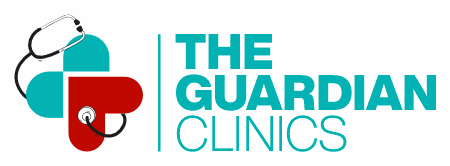

Heart Problems
We offer comprehensive care and personalized treatment plans to help you effectively manage
your symptoms. Take care of your heart health with our team of experts.
Living Well with Chronic Cardiac Conditions
High blood pressure, also referred to as hypertension, is a very common disease, which can be quite dangerous if not treated early. It often results from the thickening of artery walls due to the formation of plaque-a sticky substance made of excess cholesterol in the blood. Normally, it comes due to bad fat intake and low intake of fiber.
About Chronic Cardiac Conditions
Commonly, they occur as a result of a diseased or damaged heart. These include:
- Coronary Artery Disease: The arteries, which bring blood to the heart, become narrow or blocked.
- Heart Attack: Blood supply to one part of the heart is blocked, which in effect damages some of the heart muscle.
- High Blood Pressure: Also referred to as the "silent killer," if untreated it becomes a serious complication.
- Valve Disease: Damage to one or more of the heart's valves-affects blood flow.
- Cardiomyopathy : A disease of the heart muscle, making it problematic for the heart to pump blood.


Detection of Symptoms
Symptoms of chronic cardiac conditions can vary significantly between patients. While some may experience minimal symptoms, others may face severe manifestations. In certain cases, symptoms can be entirely absent, making diagnosis more challenging. Common symptoms may include chest pain, shortness of breath, fatigue, and swelling in the legs or feet, though the presence and severity of these signs differ from person to person.
- Shortness of Breath: This can occur during physical activity or while at rest, indicating the heart's struggle to pump blood effectively.
- Chest Pain or Discomfort: Patients may experience a feeling of pressure, squeezing, or fullness in the chest, which requires prompt medical attention.
- Fatigue: A general feeling of tiredness that doesn’t improve with rest can signal inadequate blood flow to the body.
- Rapid, irregular heartbeat: Palpitations or an unusually fast heartbeat may indicate an underlying heart issue that needs evaluation.
- Leg swelling, ankle, or foot: Fluid build-up in the lower extremities can be a sign of heart failure, warranting further investigation.
Heart Problems
Living Well with Chronic Cardiac Conditions
Chronic cardiac conditions are scary, but proper care, treatment, and changes in lifestyle ensure you can live an active and meaningful life. Proactive management forms the backbone of preserving the health of your heart at Guardian Clinics.
About Chronic Cardiac Conditions
Commonly, they occur as a result of a diseased or damaged heart. These include:
- Coronary Artery Disease: The arteries, which bring blood to the heart, become narrow or blocked.
- Heart Attack: Blood supply to one part of the heart is blocked, which in effect damages some of the heart muscle.
- High Blood Pressure: Also referred to as the "silent killer," if untreated it becomes a serious complication.
- Valve Disease: Damage to one or more of the heart's valves-affects blood flow.
- Cardiomyopathy : A disease of the heart muscle, making it problematic for the heart to pump blood.

Detection of Symptoms
Symptoms of chronic cardiac conditions can vary significantly between patients. While some may experience minimal symptoms, others may face severe manifestations. In certain cases, symptoms can be entirely absent, making diagnosis more challenging. Common symptoms may include chest pain, shortness of breath, fatigue, and swelling in the legs or feet, though the presence and severity of these signs differ from person to person.
- Shortness of Breath: This can occur during physical activity or while at rest, indicating the heart's struggle to pump blood effectively.
- Chest Pain or Discomfort: Patients may experience a feeling of pressure, squeezing, or fullness in the chest, which requires prompt medical attention.
- Fatigue: A general feeling of tiredness that doesn’t improve with rest can signal inadequate blood flow to the body.
- Rapid, irregular heartbeat: Palpitations or an unusually fast heartbeat may indicate an underlying heart issue that needs evaluation.
- Leg swelling, ankle, or foot: Fluid build-up in the lower extremities can be a sign of heart failure, warranting further investigation.

